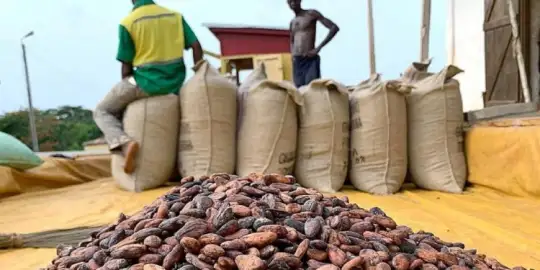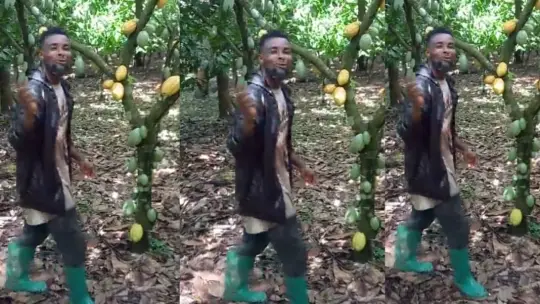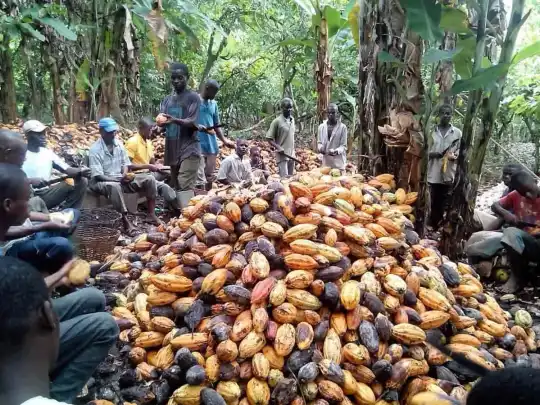
Ghana's cocoa industry, a cornerstone of the national economy, is currently facing a significant challenge: the smuggling of cocoa beans to neighboring countries. Between 2022 and 2023, the country lost an alarming 120,000 metric tons of cocoa to smuggling, according to Joseph Boahene Aidoo, the Chief Executive Officer of the Ghana Cocoa Board (COCOBOD). This major setback not only threatens the livelihood of cocoa farmers but also undermines the country's role as a key player in the global cocoa market.
The smuggling of cocoa beans from Ghana is not a new phenomenon, but recent developments have exacerbated the situation. The primary reason behind this illicit trade is the price disparity between Ghana and neighboring countries, which has made smuggling a more attractive option for some cocoa traders. Smugglers are taking advantage of the more favorable prices in nearby markets, where they can sell cocoa beans at a higher rate than they would get within Ghana. This illegal activity is detrimental to Ghana's cocoa sector, which is a vital part of the national economy, contributing significantly to export earnings and providing employment for millions of people.

At a press conference held in Accra on Monday, October 14, 2024, Mr. Aidoo expressed his deep concern about the ongoing smuggling crisis. He pointed out that despite the combined efforts of COCOBOD and various government agencies to curb this illegal trade, smuggling continues to thrive, with severe consequences for the nation's economy. "About 100 to 120,000 metric tons of cocoa was smuggled out of Ghana, especially in the last two years. This has been so because the international market trading system is inverted. When you say it is inverted, it means that today, the spot price has become more appreciable," Aidoo explained.
The CEO went on to provide further insight into the factors fueling the rise in smuggling. He attributed the growing trend primarily to the international cocoa trading system, which he described as "inverted." In this context, an inverted market refers to a situation where the spot price of cocoa – the current market price at which the commodity can be bought or sold for immediate delivery – is higher than the future price. This anomaly in the trading system has created a window of opportunity for smugglers, who are incentivized to move their cocoa beans across borders to benefit from the higher prices available in other countries.
The loss of 120,000 metric tons of cocoa over the past two years is not only a blow to Ghana's cocoa output but also a major drain on the nation's revenues. Cocoa is a critical export for Ghana, and any reduction in its legal production and sale affects the country's ability to generate foreign exchange and sustain the livelihood of farmers. Moreover, the situation poses a risk to the reputation of Ghanaian cocoa, which is renowned for its quality in the global market.

Efforts to address this problem have included tightening border controls and increasing surveillance in key cocoa-producing areas. However, the scale of the smuggling activities suggests that more needs to be done to tackle the root causes of the issue, particularly the economic incentives driving the illegal trade. The Ghanaian government and COCOBOD have implemented various initiatives to stabilize the cocoa sector, but without addressing the price disparities between Ghana and its neighbors, smuggling is likely to persist.
Aidoo called for stronger cooperation between Ghana and its neighboring countries to tackle the problem more effectively. He emphasized the need for better coordination on cocoa pricing policies and trade regulations to minimize the incentive for cross-border smuggling. He also urged cocoa farmers to sell their produce through legal channels.



No comments yet
Be the first to share your thoughts!